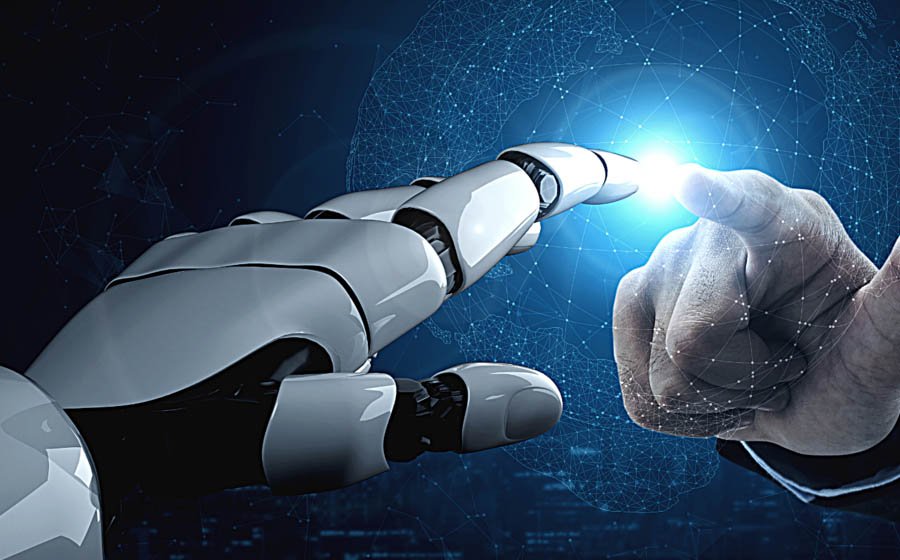In today’s digital age, businesses are increasingly looking for new ways to connect with their customers. One of the most promising technologies that has emerged in recent years is ChatGPT. ChatGPT, short for Chat-Generative Pre-trained Transformer, is an AI-powered language model that can generate human-like responses to customer queries. This technology is rapidly changing the way businesses interact with customers, and it’s having a profound impact on the customer experience.
Table of Contents
ChatGPT in Customer Service
One of the areas where ChatGPT is making the biggest impact is in customer service. Chatbots powered by ChatGPT can answer customer queries in real-time, 24/7, without the need for human intervention. This has the potential to greatly improve the speed and efficiency of customer service, and reduce the need for customers to wait on hold or deal with long email response times. For example, imagine a customer trying to book a hotel room through an online travel agency. With ChatGPT, they can quickly get answers to questions about availability, pricing, and amenities, without the need to talk to a human customer service representative.
Personalization
Another way that ChatGPT is changing the way businesses interact with customers is through personalization. By analyzing customer data and using machine learning algorithms, ChatGPT can generate highly personalized responses that take into account the customer’s preferences, behavior, and purchase history. This can make customers feel more valued and appreciated, and lead to increased loyalty and repeat business. For example, a clothing retailer might use ChatGPT to suggest outfits based on the customer’s previous purchases and browsing history, creating a highly tailored shopping experience.
Sales and Marketing
ChatGPT is also transforming the way businesses approach sales and marketing. By using natural language processing and machine learning algorithms, ChatGPT can analyze customer queries and responses to generate insights about customer behavior and preferences. This information can then be used to optimize marketing campaigns and product offerings, and to develop targeted promotions and personalized recommendations. For example, a pet supply store might use ChatGPT to analyze customer queries and identify popular pet products, which they can then promote through targeted advertising campaigns.
Multilingual Capabilities
One of the unique features of ChatGPT is its ability to understand and respond in multiple languages. This makes it an ideal tool for businesses that operate in global markets, as it allows them to communicate with customers in their preferred language. For example, a multinational corporation might use ChatGPT to provide customer service in multiple languages, ensuring that customers from around the world can easily get the help they need.
Business Disruption
ChatGPT will disrupt businesses in virtually all industries, and its use cases for customer service, personalization, and sales and marketing are just a few examples of how ChatGPT will cause disruption across various industries. As adoption grows, new business ideas using ChatGPT will emerge, contributing to a larger disruption caused by generative AI and AI in general. A new age has begun, and many businesses will either be born or disrupted.
Challenges and Limitations
Despite its many benefits, ChatGPT is not without its challenges and limitations. One of the biggest concerns is the potential for bias and discrimination in the responses generated by the system. This can occur if the model is trained on biased data or if it is not designed to recognize and avoid discriminatory language. Additionally, ChatGPT may struggle to understand and respond to complex or ambiguous queries, leading to customer frustration and dissatisfaction.
Future Developments
Despite these challenges, ChatGPT is a rapidly evolving technology with many exciting developments on the horizon. In the future, we can expect to see more sophisticated ChatGPT models that are better able to recognize and avoid bias and discrimination, and that can generate more nuanced and contextually-appropriate responses. Additionally, we may see ChatGPT integrated with other emerging technologies, such as virtual and augmented reality, to create even more immersive and engaging customer experiences.
Final Thoughts
ChatGPT is a game-changing technology that is transforming the way businesses interact with customers. From customer service to sales and marketing, personalization to multilingual capabilities, ChatGPT is revolutionizing the customer experience and helping businesses stay ahead of the competition. While there are challenges and limitations that need to be addressed, the potential benefits of ChatGPT are immense. As the technology continues to evolve and improve, we can expect to see even more innovative and exciting ways that businesses can use ChatGPT to connect with their customers.
As a society, we are becoming increasingly comfortable with technology playing a bigger role in our lives. ChatGPT is one example of how artificial intelligence is helping to improve the way we communicate, interact and do business. In the years ahead, we can expect to see more advances in this area as AI continues to evolve and become more sophisticated. It is important, however, that we continue to monitor and address any potential issues related to bias and discrimination, to ensure that ChatGPT and other AI technologies are used ethically and responsibly.
Ultimately, the impact of ChatGPT on businesses is significant and undeniable. By leveraging this technology, businesses can provide faster, more efficient, and more personalized customer service, generate insights into customer behavior, and create highly targeted marketing campaigns. The potential benefits for businesses are enormous, and as ChatGPT and other AI technologies continue to evolve, we can expect to see even more exciting developments in this area.










